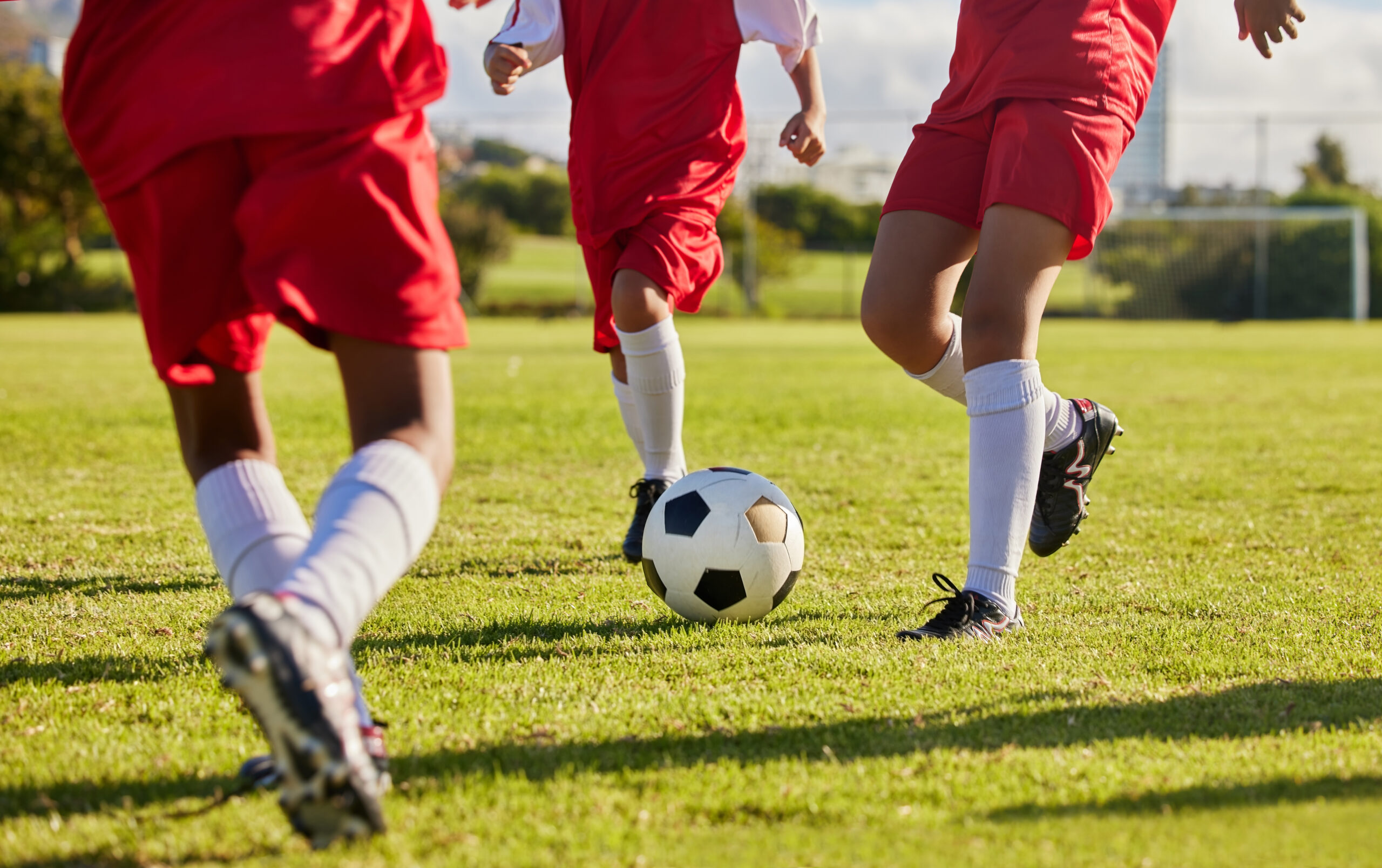In Tennessee, fall is football season. But it’s also soccer, cross-country, field hockey and golf season. If you have a child who plays one of those sports — or any other sport — you can help them succeed.
“As a parent, you can help your child have a positive experience on the field,” says Benjamin Johnson, an employee wellbeing specialist for BlueCross BlueShield of Tennessee. “That begins with the logistical items, like making sure they get a sports physical before the season starts, buying equipment, and helping them with transportation to practices. But there’s a lot more you can do, too.”
Tips for successful sports participation
Benjamin Johnson: You want to prepare your child to enjoy themselves, learn new skills and not get hurt. Here’s what parents can do to help their children have a successful experience while participating in sports:
Set expectations. Parents are essential to help children understand the expectations that come with team sports. But they have another role to play, too: role model. Parents should model the sportsmanship they want to see in their children.
Help them set goals. Ask your child what they want to accomplish by playing a particular sport. Then work with them to develop steps that will help them achieve those goals by making the goals SMART: specific, measurable, achievable, realistic and time-bound.
Emphasize the benefits of conditioning. Your child might groan about exercising before a season starts, but conditioning provides many benefits. These include acclimating to weather, strengthening muscles and reducing the likelihood of injury. It also sets a precedent for conditioning that can serve them the rest of their lives.
Focus on technique. Talk with your child about the importance of learning proper technique and form. This will help prevent injuries, as well as create a solid foundation to build upon. It might help to think about it like this: “Stability, then mobility, then strength.”
Don’t forget about growth spurts. Rapid growth is very common in this age group. It can lead to a temporary loss of range of motion, so that’s a good time to focus on mobility and stability exercises.
Encourage healthy eating. High school athletes need the right nutrients to fuel their bodies and help them stay healthy. Encourage your child to eat healthy foods. Your child needs a healthy blend of carbs, fats, and protein on a daily basis, not just on game day. They also need to stay hydrated by drinking plenty of water.
Take injuries seriously. Children need time to recover from injuries. Don’t let them rush back to the playing field and risk more serious injury. If your child experiences a concussion, a physician needs to evaluate them and make sure it’s safe for them to return to play, according to the Tennessee Secondary School Athletic Association.
Remember that it’s a learning experience. Let go of expectations that your child will get everything right the first time — and help your child understand this, too. This is a learning experience for them, and they’ll make mistakes. On the flipside, if they put in the time to practice, regardless of their natural abilities, they may achieve more than they originally thought they could. Hard work can often outshine talent.
Parents should have realistic expectation
Benjamin Johnson: It can be easy to dream big, especially if your child shows some promise in a sport. However, it’s important to be realistic. Most teenagers will not win college athletic scholarships. Very few will go on to become elite or professional athletes. Playing sports should be about exercising their bodies, learning how to be a good teammate, and understanding how to set and reach goals.
“The most important advice I have is to encourage them to have fun and enjoy the process,” Benjamin says. “The skills they’re developing — time management, discipline, self-confidence — will last far beyond their time in high school.”
More from Benjamin Johnson on WellTuned
Get more information about specific health terms, topics and conditions to better manage your health on bcbst.com. BlueCross BlueShield of Tennessee members can access wellness-related discounts on fitness products, gym memberships, healthy eating and more through Blue365®. BCBST members can also find tools and resources to help improve health and well-being by logging into BlueAccess and going to the Managing Your Health tab.


